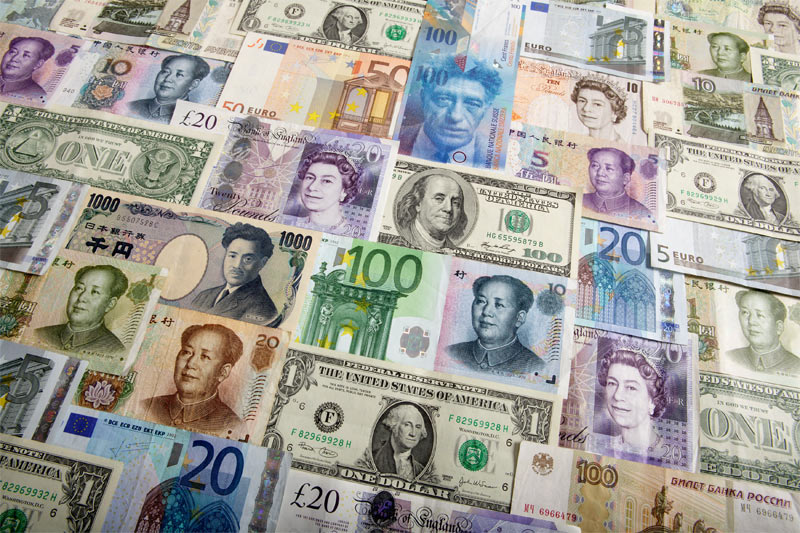Investing.com - The dollar rose to five-week highs against the euro on Thursday after the European Central Bank said it would use unconventional measures if necessary to stave off the risk of deflation in the euro zone.
EUR/USD fell to lows of 1.3698, the weakest since February 28 and was last down 0.40% to 1.3710.
The drop in the euro came after ECB President Mario Draghi said the governing council was "unanimous" in its commitment to using all unconventional instruments within its mandate to cope with the risk of low inflation becoming entrenched. He added that the bank discussed the possibility of negative deposit rates.
Earlier Thursday, the bank left rates on hold at a record low 0.25%.
The dollar was holding close to ten-week highs against the yen, with USD/JPY edging up 0.02% to 103.89.
Demand for the dollar continued to be underpinned after recent data indicated that the economy is shaking off the effects of a weather related slowdown at the start of the year. Hopes that China will implement measures to bolster slowing growth also supported risk appetite.
The Labor Department reported Thursday that the number of people who filed for unemployment assistance in the U.S. last week increased by 10,000 to 326,000 from the previous week’s revised total of 310,000.
Analysts had expected jobless claims to rise by 7,000 to 317,000 last week.
Meanwhile, the Institute of Supply Management said its non-manufacturing purchasing manager's index rose to 53.1 in March from 51.6 in February, only slightly below expectations for a reading of 53.5.
A separate report showed that the U.S. trade deficit unexpectedly widened to $42.3 billion in February from a deficit of $39.28 billion the previous month.
The pound fell to one-week lows against the dollar, with GBP/USD down 0.24% to 1.6584, after data showed that while the U.K. service sector continued to expand steadily in March the rate of expansion was the slowest in nine months.
The Markit/CIPS services purchasing managers index ticked down to 57.6 last month from 58.2 in February. Analysts had expected the index to decline to 58.1.
The index remained well above the 50 level that separates growth from contraction and signaled another month of robust growth in the sector, which comprises more than three-quarters of the U.K. economy.
Elsewhere, USD/CHF advanced 0.60% to 0.8918.
The Australian dollar was lower, with AUD/USD down 0.25% to 0.9224, pulling further back from Tuesday’s four-month high of 0.9302. Australia’s dollar shrugged off upbeat domestic retail sales and trade data as investors took profits following the currency’s recent run higher.
NZD/USD was down 0.41% to 0.8537, extending its pullback from the two-and-a-half year peaks of 0.8696 struck on Tuesday.
Meanwhile, USD/CAD was almost unchanged at 1.1037, as upbeat Canadian trade data lent modest support to the loonie.
The US Dollar Index, which tracks the performance of the greenback versus a basket of six other major currencies, was up 0.33% to a two-month high of 80.65.
